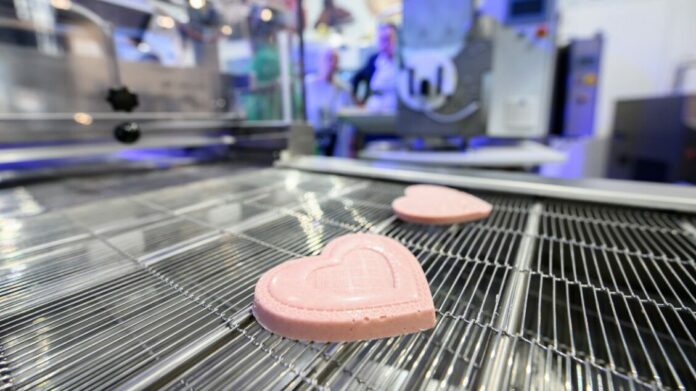ProSweets Cologne, scheduled for February 2-5 in Cologne, Germany, is poised to offer valuable insight into how artificial intelligence (AI) can revolutionize the confectionery and snack manufacturing industry, particularly in the realm of vision and quality control. The event will showcase machines equipped with smart cameras and AI-based tools that have the capability to observe, learn, and adapt. These systems facilitate the seamless collection and management of operational and machine data, as well as provide dynamic visualization and analysis, thereby ensuring real-time transparency in production processes.
Guido Hentschke, the director of ProSweets Cologne, emphasizes the immense potential of AI and machine learning, asserting that these technologies will bring about fundamental changes in company processes, particularly in the realm of quality assurance. Modern solutions incorporating computer vision and machine learning algorithms, such as those to be showcased at the event, offer unparalleled precision in detecting defects in various confectionery items like biscuits, wafers, and crackers. Whether the products are round or square, sweet or savory, or made from different ingredients like wheat or oats, even the slightest deviations can be identified on the conveyor belt immediately after exiting the continuous oven, thereby minimizing production interruptions and waste.
Furthermore, the implementation of innovative technologies such as red-green-blue camera systems, laser scans, and systems operating in ultraviolet or infrared wavelengths has proven effective in inspecting food items. Companies like Insort have introduced hyperspectral image processing, which enables the assessment of the chemical composition of products at a spatially-resolved inline and real-time level. This technology is particularly useful for inspecting items with higher variance, such as dried fruits and nuts, where AI-powered vision systems like the Sherlock Hypernova by Insort can autonomously determine whether an object belongs in a snack mix or is a foreign body. All foreign objects, including plastic, stones, metal, or glass fragments, can be swiftly removed in a single step. In addition, the bitterness of almonds can be assessed and safely discharged if necessary.
AI has not only revolutionized quality control processes but also presents opportunities for food producers to tackle complex challenges. Generative AI models trained on extensive datasets can assist in developing optimized recipes or suggesting alternative raw materials. Pierre Wiese, managing director at Solvia Digital Solutions, highlights the benefits of AI in discovering ingredient combinations and production methods that align with consumer preferences while also being cost-effective. The increasing demand for AI applications has led to a surge in interest in the SAP Business Technology Platform (BTP), which offers a range of options for leveraging generative artificial intelligence effectively.
One noteworthy application of AI in the food industry is Döhler’s product finder tool, which enables AI-supported recipe searches. This tool will be showcased during the event, showcasing the innovative capabilities of AI in recipe development. Additionally, experts like Julia Hildebrant from Mehr.Wert Qualitätslösungen will present lectures on AI in the quality section, focusing on smart solutions for efficiency and safety. These presentations will offer practical examples and innovative approaches to cost-efficient and future-proof production through the integration of AI tools.
Overall, ProSweets Cologne serves as a platform for industry professionals to explore the transformative potential of AI in confectionery and snack manufacturing. By harnessing the power of AI-driven technologies, companies can enhance quality control processes, optimize recipes, and streamline production operations, ultimately driving innovation and efficiency in the food industry.




